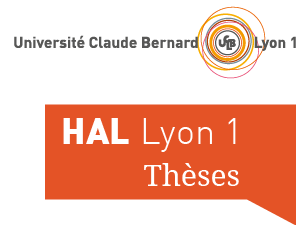When control over food spirals out of control : investigating the cognitive mechanisms of food hyper-selectivity in individuals suffering from anorexia nervosa and orthorexia nervosa
Quand le contrôle de son alimentation devient incontrôlable : étude des mécanismes cognitifs de l'hyper-sélectivité alimentaire chez les personnes souffrant d'anorexie mentale et d'orthorexie mentale
Résumé
While it is common for individuals to monitor their food intake, doing so excessively can lead to a loss of control and potentially result in the development of an eating disorder. The objective of this thesis was to explore how the desire to control one's food intake can lead to a loss of control. To achieve this, two models were examined: anorexia nervosa and orthorexia nervosa. We identified three types of factors involved: 1) the individual's environment, which can be associated with higher rates of eating disorders and orthorexia nervosa: we found a greater prevalence of eating disorders in culinary arts students compared with dietetics students and the general population; 2) the relationship to the body underlying food categorization: we found a stronger association between food and bodily stimuli in subjects suffering from anorexia nervosa compared with control subjects ; 3) a high perception of risk when making food choices: we found that individuals with anorexia nervosa and high traits of orthorexia nervosa used specific food categorization strategies, which suggested a higher perception of risk when making food choices within these populations compared to control populations. This thesis provides a better understanding of the categorization processes involved in anorexia and orthorexia nervosa. It paves the way for further studies on risk perception and the accompanying emotional responses, such as fear and anxiety. Additionally, the findings can be used to develop cognitive-behavioral interventions for individuals struggling with anorexia and orthorexia nervosa.
Le contrôle de son alimentation est devenu une préoccupation majeure, mais qui peut parfois amener à l’individu à perdre le contrôle sur son alimentation et amener jusqu’aux troubles du comportement alimentaire (TCA). Cette thèse s’est intéressée à comprendre comment la volonté de contrôler son alimentation peut mener à la perte de contrôle, en s’appuyant sur deux modèles : l’anorexie mentale et l’orthorexie mentale. Nous avons identifié trois types de facteurs impliqués : 1) l'environnement de l'individu : nous avons observé des plus grandes prévalences chez les étudiants en arts culinaires par rapport aux étudiants en diététique et à la population générale ; 2) le rapport au corps qui sous-tend la catégorisation des aliments : nous avons trouvé une association plus forte entre les stimuli alimentaires et corporels chez les sujets souffrant d'anorexie mentale par rapport aux sujets témoins ; 3) une perception élevée du risque lors des choix alimentaires : les individus souffrant d'anorexie mentale et d’orthorexie mentale utilisaient des stratégies spécifiques de catégorisation des aliments, suggérant une perception du risque plus élevée lors des choix alimentaires au sein de ces populations par rapport aux populations témoins. Cette thèse permet de mieux comprendre les processus de catégorisation impliqués dans l'anorexie et l'orthorexie mentale. Elle ouvre la voie pour de nouvelles études sur la perception du risque et des réactions émotionnelles qui peuvent en découler telles que la peur et l’anxiété, et ainsi cibler les interventions de types cognitivo-comportementales dans l’anorexie et l’orthorexie mentale.
Domaines
Sciences cognitives| Origine | Version validée par le jury (STAR) |
|---|
